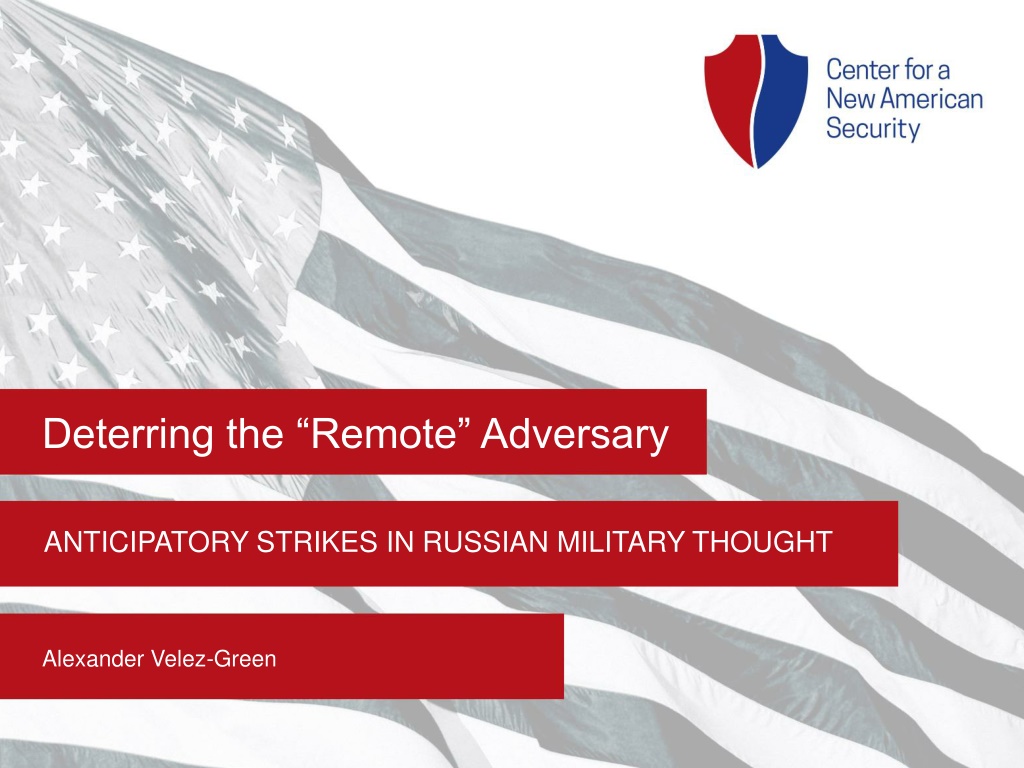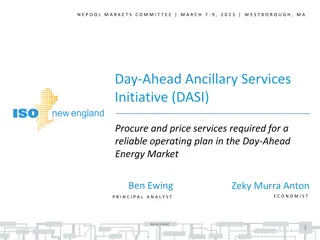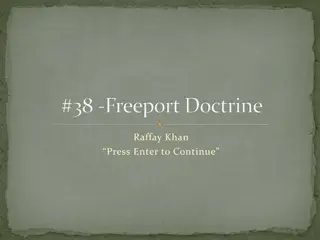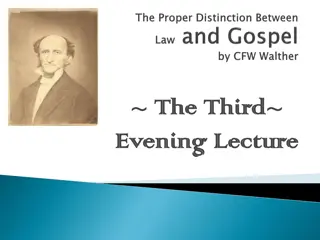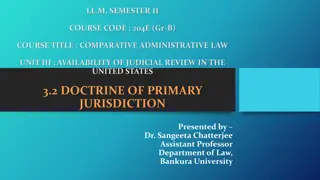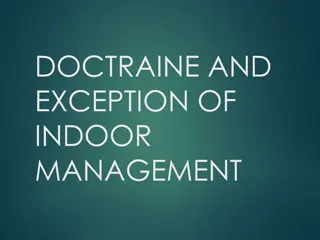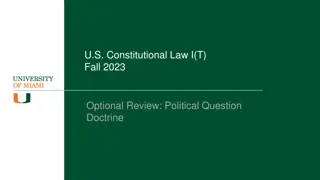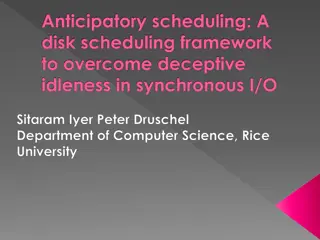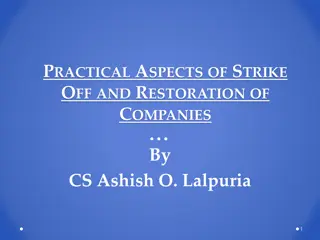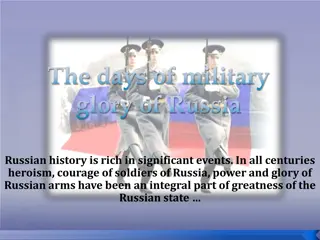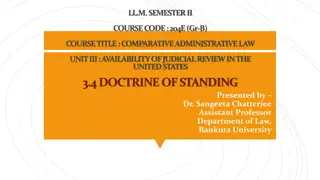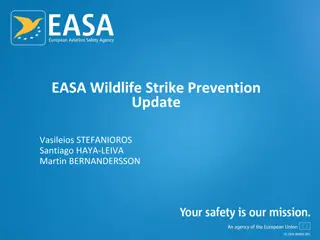Russian Anticipatory Strike Doctrine: Implications and Considerations
Exploring the concept of Russian anticipatory strikes in military thought, this brief delves into the potential motivations, strategies, and targets of such actions. From seizing strategic initiative to engaging deep enemy territory, the implications for U.S./NATO relations are significant. Understanding the rationale behind Russian anticipatory strike doctrine is crucial for anticipating and managing potential conflicts in the future.
Download Presentation

Please find below an Image/Link to download the presentation.
The content on the website is provided AS IS for your information and personal use only. It may not be sold, licensed, or shared on other websites without obtaining consent from the author. Download presentation by click this link. If you encounter any issues during the download, it is possible that the publisher has removed the file from their server.
E N D
Presentation Transcript
Deterring the Remote Adversary ANTICIPATORY STRIKES IN RUSSIAN MILITARY THOUGHT Alexander Velez-Green
The Center for a New American Security does not take institutional positions on policy issues. Accordingly, all views, positions, and conclusions expressed in this brief should be understood to be solely those of the presenter. 2
Agenda Why a Russian anticipatory strike doctrine? What would Russian anticipatory strikes look like? When would the Russians even do something like this? Why should this matter to the United States? What can the United States do? 3
Why a Russian Anticipatory Strike Doctrine? Russian military thought leaders are exploring the potential merits of an anticipatory strike doctrine. Russia would need to act first in crisis. Consideration is driven by (3) beliefs about the future of warfare. 1. The opening blows of a conflict will be decisive. 2. If Russia loses the initiative, it loses the war. 3. Russia must get the first step in a conflict with the United States and NATO to prevent or defeat further U.S./NATO aggression. 4
What Would a Russian Anticipatory Strike Look Like? Many Russian anticipatory strike advocates frame anticipatory strikes as an intra-crisisdeterrent mechanism. Object.: Inflict unacceptable damage on the U.S./NATO. Convincing Western leaders and publics that the costs of continuing to fight > any plausible benefits. This is an extension of the escalate to de-escalate logic for early war termination on terms favorable to Moscow. 5
What Would a Russian Anticipatory Strike Look Like? Others frame it more in military-operational terms. They focus on the Russia seizing the strategic initiative first. Deterrence-by-denial? Achieve outright military victory? Authors sit on both sides of this divide. 6
What Would a Russian Anticipatory Strike Look Like? Anticipatory strikes would strike explicitly military targets including space, cyber, and terrestrial assets. Some authors argue they would also hit economic targets. Russian thinkers are clear that strikes would necessarily engage targets deep into enemy [read: U.S./NATO] territory. 7
When in the World Would the Russians Even Do Something Like This? War between Russia and the United States and NATO remains a real possibility. In the event of war, the evidence suggests that Russian policymakers are considering employing anticipatory strikes. 8
Why Should this Matter to the United States? Russian adoption of an anticipatory strike doctrine would increase the chances of war between the United States and Russia. It would exacerbate the very condition responsible for their adoption of the doctrine: the loss of time. Increases chance of premature or imprudent Russian action. Increases chance of premature of imprudent U.S./NATO action. It would also limit the tools available to the United States and NATO to deter Russian adventurism. 9
Why Should this Matter to the United States? Potential triggers for a Russian anticipatory strike remain unclear. This raises the possibility of inadvertent escalation. Anticipatory strikes are more likely to elicit an escalatory rather than de-escalatory response. 10
What Can the United States Do? Deter Russian adoption of an anticipatory strike doctrine. Anticipatory strikes would be unnecessary, futile, and costly. 11
What Can the United States Do? Unnecessary Reduce first use pressures on Russia. Futile Cyber resiliency to fortify U.S. battle network in Europe. Space resiliency and endoatmospheric back-ups. Disperse long-range strike and counter-battery assets. Undersea missile pods, upwards falling payloads, and other hard- to-target and/or highly-survivable strike assets. Costly Declaratory policy defining escalatory behavior. The United States is ready and willing to match Russian aggression tit-for-tat. 12
